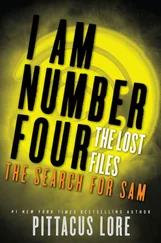“Isn’t it strange she sent the message to her husband?” George asked Mike.
“According to Canadian authorities, she tried to call the police on several occasions, but each time the call was cut off before she spoke. Presumably due to poor reception,” Cliff cut in. “Her husband called nine one one, and then, apparently, someone notified the media.”
Once again, George felt he was in over his head, and he had no intention of making a fool out of himself on national television.
He knew what to say.
George looked at his boss. “Make sure you don’t answer any questions regarding what might have happened to the plane. Just refer to the ongoing search and investigation, and put the focus on the NTSB, instead of us. Do not speculate on what happened to the plane, Mike.”
“Me?” Mike mumbled, and looked surprised “I thought you were going to hold the press conference. You’re the designated spokesperson in this crisis team.”
George nodded in acceptance of his boss’s statement. “I am aware of that, but I’m also just the public relations manager of this company. Trust me, it looks better if the CEO holds the press conference. Your handling that shows the public this matter has the highest priority.” George used a diplomatic tone. “Don’t worry, you’ll do fine. I’ll write a brief statement for you to read.”
“The kid’s got a point, Mike,” Cliff said.
George didn’t care for the ‘kid’ remark, as he was a bit sensitive about his height, or more accurately, his lack of height. But he was also relieved that the man across the table agreed with him and helped argue his case to CEO Williams.
“I suggest you not shave before the press conference.” George paused a few seconds to add more drama—he was good at that. “It shows the public you’re upset about what happened,” he added. “In fact, don’t change your clothes between press conferences for the same reason.”
George noticed Cliff staring at him, but he wasn’t sure if the man was disgusted or impressed by his strategy. He assumed it was the latter.
Michael Williams reluctantly nodded in agreement, and then looked at Cliff.
“What do you make of all of this, Cliff? What do you think happened?”
George noticed the distinctive expression on Cliff’s face. His eyebrows had almost merged with his nose.
“My guess is that one pilot went to the bathroom,” Cliff said. “Protocol states a pilot can’t be alone in the cockpit, so the stewardess you mentioned must have taken the pilot’s place in the cockpit. At that point, someone ambushed the pilot in the bathroom, killed him, and took his uniform. The stewardess then opened the door, to let who she believed was the pilot back into the cockpit. Then, the same person killed the other pilot and threw the stewardess out of the cockpit. Leaving the stewardess with two dead pilots, and none of the passengers noticed what happened.”
“That doesn’t make any sense,” George said, and shook his head in disbelief.
Cliff’s face dropped. “Why not?”
“Took his uniform. Come on, that’s preposterous.”
“Simplicity is the ultimate sophistication,” Cliff quickly responded.
What does that even mean?
“Besides, how do you plan for something like that?” George asked.
“You don’t,” Cliff responded. “The plan was probably to threaten the life of a crew member, but as the pilot went to the bathroom, the plan must have changed.”
“Isn’t the cockpit secured by a pin-code door lock?” George asked, and looked at his boss. “In addition to a manual lockdown from within the cockpit?”
“Either way, the pilot could have given up the code. Following protocol when the blade is on your neck and fear takes hold is hard,” Cliff asserted.
“What blade?” George looked at Cliff in puzzlement. “You can’t bring a knife through security,” he quickly added.
“Son…” Cliff mumbled in a patronizing tone. “In my younger years, I worked as a correctional officer at a federal prison, and I learned one thing from back then—an inmate can make a knife out of just about anything. An inmate could probably produce thousands of shivs from the materials in a departure hall. There’s glass, metal, razor blades, toothbrushes, you name it…” Cliff trailed off.
How do you kill a person with a toothbrush?
“What kind of terrorist hijacks a plane and flies into the Canadian wilderness?” George asked with a hint of sarcasm.
Cliff nodded and looked across the desk.
“The kid’s got a point, Mike,” Cliff said. “I don’t think this is terrorism. At least not in a traditional sense. Terrorists want to draw attention to their cause and spread as much fear as possible. Crashing a plane into the Canadian wilderness doesn’t spread fear, it only raises a lot of questions. Besides, why go through the trouble of breaching the cockpit?”
“What do you mean?” Mike frowned.
“If they just wanted to bring the plane down one way or another, why go to the trouble of breaching the cockpit?”
So they could crash the plane. Obviously.
“How to you crash a plane without accessing the cockpit?” George asked.
“I can think of numerous ways,” Cliff said. “For instance, a minor explosion is probably enough to bring the plane down, or at least make landing impossible.”
“How do you get a bomb through security?”
George’s voice had grown more condescending, and he could tell that his colleague was provoked by his aggressive line of questioning.
“You can’t bring a bomb through security, son, but you can easily bring the components and the ingredients though security. Then you assemble the bomb in the bathroom.”
“You’re referring to nitroglycerin, are you not? You think three points four ounces is enough to bring down a plane?” George questioned in an assertive tone.
“Son…” Cliff sighed. “First of all, the limit of liquid you’re referring to is per item and not per person. And second, you don’t need explosive oil to cause an explosion. Come to think of it, you could use oxygen, for example. You would have no trouble getting oxygen through security.”
“What do you mean by oxygen? As in the air we breathe?”
“Son…” Another sigh. “We breathe nitrogen, mixed with a little bit of oxygen, just to keep our flame going.” Cliff tapped his chest. “It’s the oxygen that burns, and if no oxygen is in the room, there can’t be a fire.”
Tell me something I don’t know.
“I’m talking about pure oxygen,” Cliff said. “Trust me, it’s highly flammable, and when contained and exposed to sudden temperature change, it will explode. For example, one could cause an explosion by short-circuiting a cell phone battery.”
Oxygen?
Cliff cleared his throat. “TSA only looks for bottles with liquid in them. An empty water bottle filled with oxygen would easily pass through security. Come to think of it, if sealed properly, perhaps an entire carry-on could be filled with oxygen, and when passing through the x-ray, the carry-on would appear as empty. And it’s easy to start a fire on board the plane. You could simply stick a handkerchief down a bottle of booze and light it with a lighter. A few Molotov cocktails would set the entire plane on fire in no time. You’re permitted to bring a lighter with you on the plane, and they sell plenty of alcohol in the departure hall.” Cliff chuckled.
You can’t bring a lighter through security… Can you?
Cliff’s eyebrows plunged into another undesirable frown. “Come to think of it, you might as well just check in your luggage. All you need is something that ignites, or produces enough heat to start a fire. For example, you could alter the battery on a laptop, and then program the laptop to turn itself on once the plane is in the air. When the battery gets too hot, it’ll explode and ignite the oxygen. And there’s no limit to the size or volume of liquid items for checked baggage. You could easily hide explosive oil within other liquid bottles. An empty …” Cliff put his hands in the air and gesticulated air quotes. “…suitcase with a laptop, and a few bottles of liquid would do the trick.”
Читать дальше











